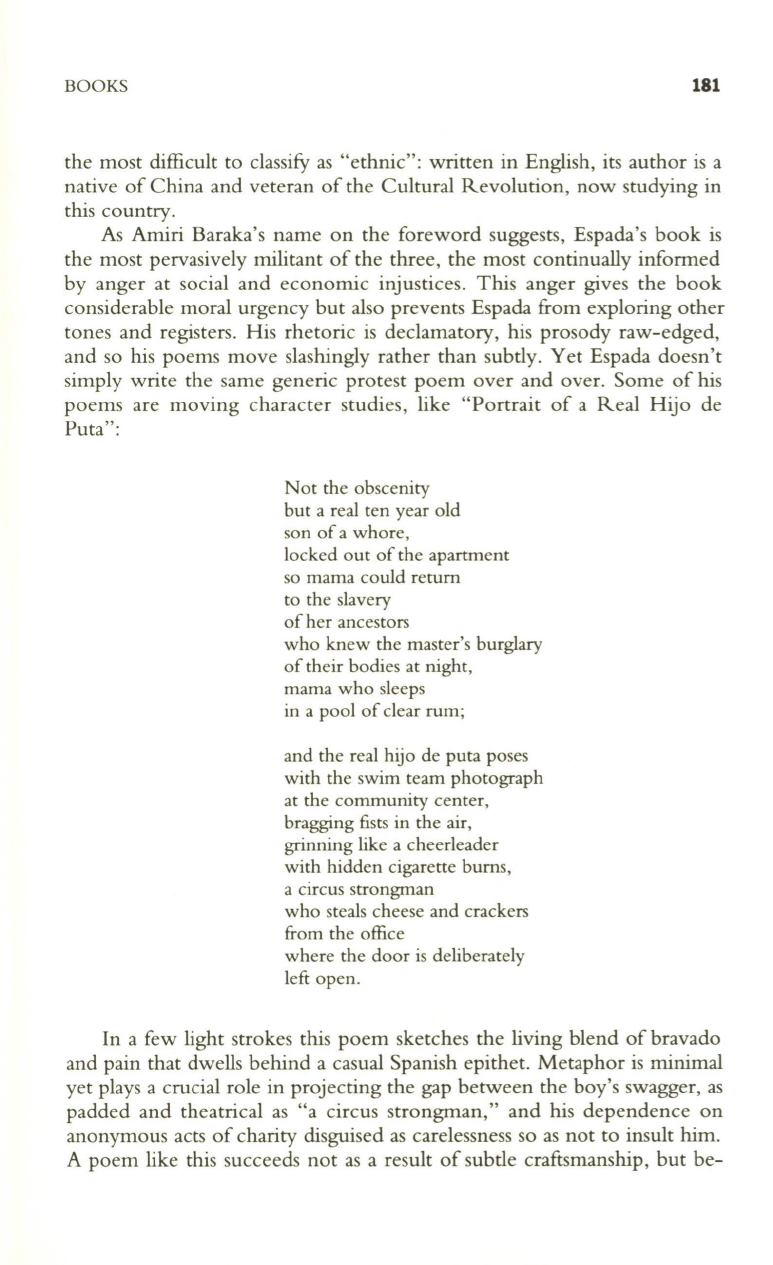
BOOKS
181
the most difficult to classifY as "ethnic": written in English, its author is a
native of China and veteran of the Cultural Revolution, now studying in
this country.
As Amiri Baraka's name on the foreword suggests, Espada's book is
the most pervasively militant of the three, the most continually informed
by anger at social and economic injustices. This anger gives the book
considerable moral urgency but also prevents Espada from exploring other
tones and registers . His rhetoric is declamatory, his prosody raw- edged,
and so his poems move slashingly rather than subtly. Yet Espada doesn't
simply write the same generic protest poem over and over. Some of his
poems are moving character studies, like "Portrait of a Real Hijo de
Puta":
Not the obscenity
but a real ten year old
son of a whore,
locked out of the apartment
so mama could return
to the slavery
of her ancestors
who knew the master's burglary
of their bodies at night,
mama who sleeps
in a pool of clear rum;
and the real hijo de puta poses
with the swim team photograph
at the community center,
bragging fists in the air,
grinning like a cheerleader
with hidden cigarette bums,
a circus strongman
who steals cheese and crackers
from the office
where the door is deliberately
left open.
In a few light strokes this poem sketches the living blend of bravado
and pain that dwells behind a casual Spanish epithet. Metaphor is minimal
yet plays a crucial role in projecting the gap between the boy's swagger, as
padded and theatrical as "a circus strongman," and his dependence on
anonymous acts of charity disguised as carelessness so as not to insult him.
A poem like this succeeds not as a result of subtle craftsmanship, but be-


